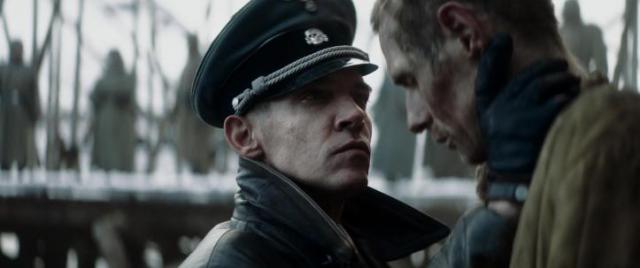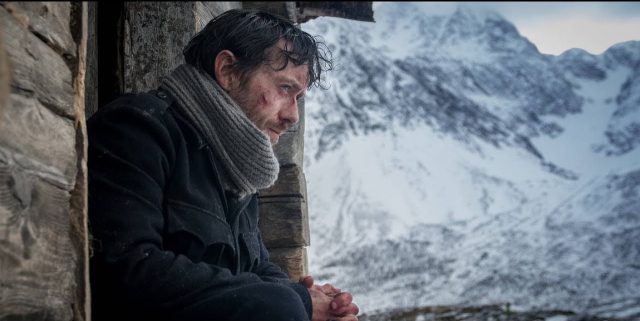The following review of The 12th Man is spoiler-free.
If you’d told me fifteen years ago that the director of the Frankie Muniz-starring Agent Cody Banks was capable of crafting one of the greatest World War II films ever made, I probably would have hit you over the head with a lamp or something. Fortunately, you didn’t tell me that, so I owe no apologies.
Harald Zwart‘s The 12th Man tells the extraordinary true story of Jan Baalsrud, a Norwegian soldier who possesses valuable information, that escapes Nazi soldiers and is forced to survive the extreme weather conditions of the Arctic Circle for several months as he faces life-threatening injuries and relentless searching by the Nazis. Relying on the kindness and potential sacrifice of Norwegian strangers, of whom he’s become a beacon of hope during times of devastation, Baalsrud seeks passage into Sweden, where he’ll be safe and can help bring about the end of the war.

As evidenced by the synopsis, there are many moments of breathless tension throughout Zwart’s film- both in Baalsrud’s personal journey and in the moments of extreme danger that his helpers find themselves in. Those tense situations, though, are deftly balanced with a sense of optimism as Baalsrud and the audience are continually met with the uplifting nature of the human spirit. These moments allow The 12th Man to be unexpectedly moving and poetic, and I found myself on the verge of tears numerous time.
A solid portion of that emotional pull comes from the performances by nearly everyone featured on screen. Those who portray the Norwegians that are helping Baalsrud incredibly capture the heart that keeps our central character moving through the frozen hell he’s found himself in, but it’s the performance of Thomas Gullestad as Baalsrud himself that will prove jaw-dropping to many viewers. Gullestad plays Baalsrud in a manner that is equal parts heartbreaking and inspirational. When Baalsrud maintains hope, Gullestad allows viewers to feel that same sense of optimism against a bleak backdrop.
It must also be noted that Jonathan Rhys Meyers gives what is arguably the greatest performance of his acclaimed career as Kurt Stage, the Nazi officer who is hellbent on finding and killing Baalsrud. Though he makes horrific decisions, he isn’t the stereotypical portrayal of an evil cinema Nazi. He bases those decisions on pride in himself, the uniform he wears, and a fear of letting down those who rely on his service. He’s a despicable human being, but the layered performance by Meyers gives viewers a glimpse inside his motivations.

The direction by Zwart remains top-notch throughout, as he wrings tension, sadness, and overwhelming beauty out of this true story. Geir Hartly Andreassen, too, plays a large part in that beauty, as the cinematographer captures countless shots of the breathtaking countryside.
The only issue I had with The 12th Man is that, about halfway through, I began to feel the runtime. Clocking in 2 hours and 10 minutes, Zwart’s film finds itself dragging in the latter half of its second act before bringing things home with a rousing, white-knuckle finale.
Resting in the upper echelon of World War II-themed films, The 12th Man is a thrilling, heartbreaking, and above all- triumphant tale of survival and the human spirit. It’s a must-see. The 12th Man will be released on Friday, May 4 in New York and Los Angeles, as well as on Digital and On Demand platforms!
 PopHorror Let's Get Scared
PopHorror Let's Get Scared




